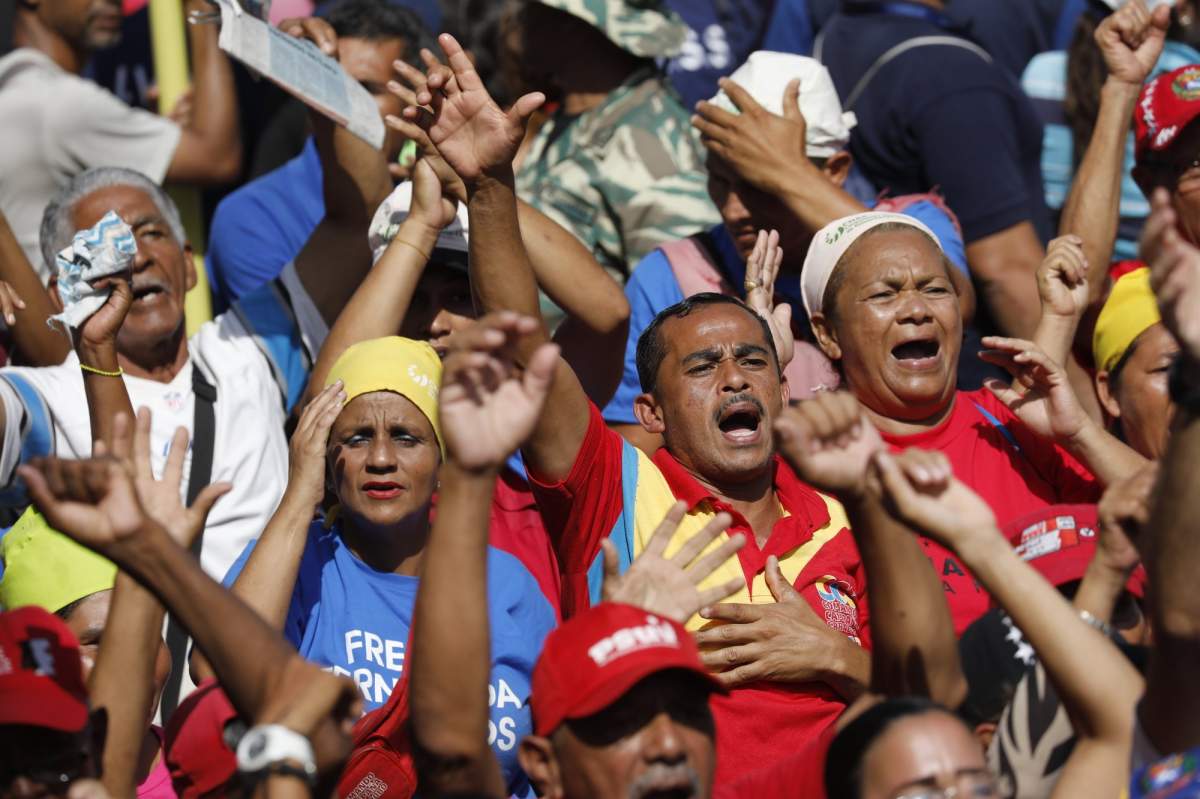A U.S. Senate committee approved a bipartisan bill Wednesday that seeks to accelerate planning at international financial institutions for Venezuela‘s reconstruction.

The measure adopt also would authorize $400 million in new humanitarian assistance and formally recognize and support efforts by Venezuelan opposition leader Juan Guaido to restore democracy.
The Senate Foreign Relations Committee amended the measure to include three bills approved in March by the House of Representatives to expand U.S. humanitarian assistance in Venezuela, prohibit U.S. arm sales to the government of President Nicolas Maduro, and counter Russia’s presence and influence in the South American country.
The legislation now moves forward to be considered by the full Senate.
Democratic Sen. Bob Menendez of New Jersey and Republican Sen. Marco Rubio of Florida called the proposal the most comprehensive legislative effort to date to confront the crisis in Venezuela.

Get daily National news
WATCH: Maduro meets with soldiers in show of strength in Venezuela

The governments of the United States and about 50 other countries recognize Guaido as the legitimate leader of Venezuela, saying they consider Maduro’s re-election last year fraudulent because strong opposition candidates were prevented from running.
The House Judiciary Committee was poised Wednesday to debate a separate bill that seeks to protect Venezuelan citizens currently living in the United States from deportation by granting them temporary protected status.
A corresponding TPS bill has also been introduced in the Senate. A group of 23 Democratic senators and Rubio sent a letter in March to President Donald Trump asking him to give the protection to more than 70,000 Venezuelans in the U.S.
Temporary protected status is granted to people from countries ravaged by natural disasters or war and lets them remain in the U.S. until the situation improves back home. About 300,000 people have received those protections.
But the Trump administration has moved to discontinue that specific protection for many countries and it has not publicly addressed the possibility of conceding TPS to Venezuelans.
“We requested asylum three years ago and have not received a response yet. We need another option such as TPS,” Venezuelan migrant Ricardo Calleja told The Associated Press.
Calleja, who attended the House hearing, left Venezuela for Baltimore in 2016 with his wife and two young sons.







Comments
Want to discuss? Please read our Commenting Policy first.